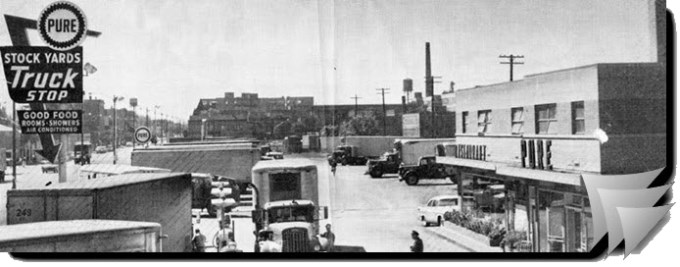New day, new tip, new feature. Today we are proud to introduce new category for our daily tips: Tipping Truckstop. This is where fellow tipping truckies get together to discuss topic du jour and add some collective wisdom to complex and often contentious but always fascinating world of Dynamics CRM. Without further ado.

A Dynamics CRM deployment should include the following functional administration roles. These hats can be worn one or more people, but somebody needs to be responsible for these areas.

Today at the truckstop
Chris Cognetta
Donna Edwards
Daniel Cai
Matt Wittemann
Gustaf Westerlund
- Trainer: The trainer is responsible for training new and existing users. Will be busiest around deployment and upgrade time.
- Business Analyst: The Business Analyst is responsible for streamlining and automating processes, identifying manual processes as candidates for automation in CRM, researching, identifying and suggesting improvements, and ensuring the company achieves an ROI. This role oversees the documentation and rationalization for implemented business processes and is responsible for change orders. This role needs to be able to communicate both with business end and technical end and be the right hand to the project manager during and after the implementation.
- Application Support: This has a server and client aspect. When users have an error message or performance issue, initial troubleshooting should be conducted on the client to identify if the issue is in the client or server side. Server side support will do tasks like checking SQL resources, checking event logs, and running server performance traces. Work with Microsoft Support as needed to resolve issues.
- SQL Admnistration: The SQL admin will be responsible for backups and ongoing SQL maintenance, such as rebuilding indexes, and management of SQL Reporting Services. Not needed for Online deployments..
- CRM Server Administration: The CRM server admin will be responsible for applying update rollup patches to the CRM servers and monitoring server performance. Not needed for Online deployments.
- CRM Deployment Administrator: The deployment admin has permission to log in to the Deployment Manager on the CRM server. By default, this is the user who installs CRM. Additional deployment administrators should be added. The deployment admin is needed whenever licenses are updated, plugins are deployed, organizations are created/imported, or something characteristic is changed with your deployment architecture. not needed for Online deployments.
- CRM Client Administration: The Client admin will be responsible for deploying the CRM Outlook client and applying patches as necessary. Also responsible for deploying tablet app.
- Exchange Administration: The Exchange admin will be responsible for the email router or server synchronization. Also responsible for troubleshooting emails with incoming or outgoing email and verification that new users mailbox settings are correct.
- AD Administration: If auto group management is turned off, the AD administrator will need to add people to the appropriate AD groups before they can be added as users in CRM. Not needed for Online deployments.
- Integration Administration: The Integration Admin will be responsible for the scheduling and monitoring of CRM integration jobs
 of the
of the